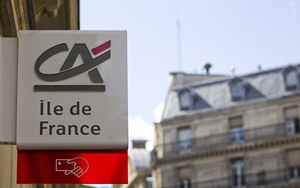(Finance) – With the acquisition of 9.2% of Banco BPM from Crédit Agricole the focus on the Italian banking riskeven if the French for now speak of partnership and the desire not to exceed 10%, and on shopping for companies across the Alps in Italywith French entrepreneurs and finance who in the last 20 years have got their hands on countless Italian jewels, without the flow of capital and influence being reciprocal.
In the field of luxury have passed under French control, among others, Fendi, Bulgari, Loro Piana, Pomellato, Gucci (merged into conglomerates such as LVMH And Kering, who have never had correspondents in Italy). L’industry he saw EDF acquire Edison and Lactalis take over Parmalat. Leaving aside Telecom Italiaa very complex game where the most relevant shareholder is in any case Vivendi by Vincent Bolloré, it must instead be emphasized that the deals involving Luxottica and Fiat had as results alliances that tend towards Paris (with the constitution of EssilorLuxottica And Stellantis).
The purchase of BNL by BNP Paribas
In the field of finance, apart from the passage of Borsa Italiana within the group Euronextthe two protagonists of shopping in Italy are Credit Agricole and BNP Paribas. The latter has been present in Italy since 1967 as BNP and since 1979 as Paribas, but has consolidated its presence in the country with the purchase of BNL in 2006 which, following the integration process, now oversees commercial banking activities. The ownership structure of Banca Nazionale del Lavoro underwent several changes, but in the end control was acquired by the French, who finalized the operation after the failure of two acquisition attemptsthrough a takeover bid (takeover bid) by Banco de Bilbao, formerly the bank’s main shareholder, and by Unipol.
Crédit Agricole shopping in the center-north
Credit Agricole’s unscheduled blitz on Banco BPM brings to mind what was done on Credito Valtellinese by the French group led in Italy by Giampiero Maioli. In that case, Crédit Agricole bought a 5% stake in July 2018, as part of a long-term partnership in the life insurance sector, and then reached a takeover bid three years later, in 2021.
The change of pace of the French group in Italy, however, dates back to the mid-2000s. In particular, in 2007 Banca Intesa sold for antitrust reasons (following the merger with Sanpaolo IMI) control of Cariparma and of FriulAdria to Crédit Agricole. The next step came in 2010, when an agreement with Intesa Sanpaolo led to the sale to the Cariparma-FriulAdria group of 80% of the Savings Bank of La Spezia.
In 2017 Crédit Agricole Italia finalized the purchase, from the Interbank Deposit Protection Fund, of Cassa di Risparmio di CesenaBanca Carim – Cassa di Risparmio di Rimini and Cassa di Risparmio di San Miniato.
The Copasir alarm
The foreign presence in the banking and insurance sector was the subject of a Copasir report at the end of 2020. The document of the Parliamentary Committee for the Security of the Republic underlined that “the influences and interests that large companies and other subjects can project on the -internal financial represent a potentially risky factor not only in relation to repercussions on the social, industrial and employment side, but also with reference to possible threats to national interests“.
The Copasir report also focused direct attention on Unicredit, with French CEO Jean Pierre Mustier who in the meantime gave way to Andrea Orcel. The committee recognized “in recent years some initiatives apparently aimed at freeing the bank from Italy. In fact, UniCredit’s sale of some “Italian jewels”, such as Fineco and Pioneer, or the reduction of the BTP portfolio “.
The legislation on golden power
At the beginning of the pandemic, at a time when stock prices had collapsed, making some companies easier prey for foreign capital, the Italian government the legislation on golden power has been extended. The Legislative Decree of 8 April 2020 strengthened the regulation of special powers in sectors of strategic importance, expanding the scope of intervention also to banking and insurance sectors.
With the uncertainties caused by the war in Ukraine, the government would be ready to give a new squeeze on the legislation. “In a moment of tremendous international tension and uncertainty, the delicate balance between the need to attract foreign capital and that of maintaining control over strategic operators in some vital economic sectors must be pursued by redefining some aspects and at the same time ensuring greater adequacy of the administrative structures in charge “, said a few weeks ago the Undersecretary to the Presidency of the I recommend Roberto Garofoli.
